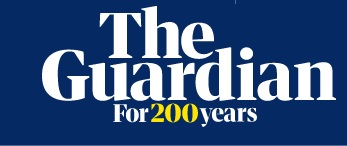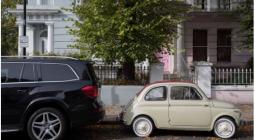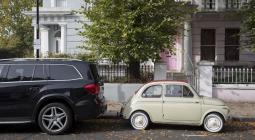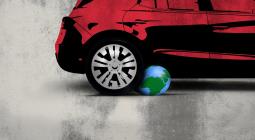Will other cities copy Paris decision to hike parking charges for SUVs?
Very low turnout in vote to penalise owners of large cars suggests public still needs to be won over
Pushing a pram as they walked out of a voting station, Joanna and Louis agreed that SUVs were not suitable for a compact city like Paris. “We have a young child and we would like there to be less traffic and more space,” said Joanna, a 34-year-old consultant.
Like tens of thousands of other Parisians, the couple took part in a referendum on Sunday about whether owners of big cars should pay more to park in a city that has quickly become one of the most bike-friendly capitals in the world.
The vote came down in favour of tripling payments, and has been hailed by many as an inspiration for cities across Europe trying to make their streets safer and their air cleaner as sales of heavy vehicles soar.
“Cities such as London, Amsterdam and Copenhagen are all pioneering in improving urban environments, putting human welfare and clean air first,” said Barbara Stoll, the director of the campaign group Clean Cities.
“With this in mind, the vote in Paris will surely send a ripple to encourage bold measures to prioritise people over cars.” Big cars, the evidence shows, are more likely to kill people than small ones. They also pump more dirt into people’s lungs and planet-heating gas into the atmosphere.
But cities seeking to cut the numbers of SUVs on their streets face resistance from owners and apathy from others. The result of the vote in Paris, which passed by a narrow margin and with a low turnout of just 5% of the city, was that 55% threw their support behind the plan.
Turnout was even lower than a previous referendum to ban electric scooters, said Brian Caulfield, a transport professor at Trinity College Dublin. “Parisians over the past decade have seen much bigger changes in transport than this new SUV measure and this could be linked to the low turnout.”
Outside a polling station in the wealthy ninth district of Paris, where 40% of cars are SUVs, even supporters of the proposal said they felt uncomfortable with the symbolism of the vote.
Marie-Claire Polo, a 30-year-old journalist, said the rise of SUVs was an “ecological absurdity” but added that parking charges were too high for some people who needed a car.
Joanne Boulenger, a 33-year-old marketer, said she wanted to send a signal to make Paris greener but also worried that the referendum turned people against each other. Her boyfriend, she added, saw the referendum as “demagoguery” and had not gone to vote.
Sandra Weigand, 70, said she had chosen not to vote because she found it polarising. “To be a bit more green, to be a bit more environmentally responsible, I say yes. But to stop people from living, from parking … it’s not possible.”
Transport experts say that, to clean up the sector, policymakers need a mix of “carrots” like cheap public transport and “sticks” like taxes on bigger cars. But the latter has proven a hard sell.
New cars in the EU and UK have grown 1cm wider every two years, the Guardian revealed last month, and sales of large luxury cars have increased. The International Energy Agency has warned that the global rise of SUVs is hurting efforts to cut emissions but politicians have made little effort to reduce their popularity.
One challenge is that attempts have been met with fierce resistance from the automobile lobby and in countries from the UK to Germany the issue has been dragged into a culture war.
In Germany, efforts to put a general speed limit on motorways have been criticised by its most pwerful tabloid and senior ministers as an infringement on civil liberties. In the UK, some people have spread the idea that “15-minute cities” are government efforts to control the population.
Bernard, 82, coming out of the voting station, said the Parisian proposal amounted to “discrimination”. He added that it was a myth that big cars were more dangerous than small ones, despite research showing the opposite.
A retired lawyer who gave his name as Monsieur Durand said he voted against the proposal because he already paid enough in tax for his SUV. “If there are some who can afford beautiful cars, others see it as a good reason to be jealous.”
Paris is on track to become the first capital to charge heavy cars more than lighter ones, though a similar scheme has been announced in Lyon, the third-largest city in France. The association of German cities has also come out in favour of such a scheme.
Anne Hidalgo, the mayor of Paris, has said she hopes to inspire other cities. The vote could also send a signal to carmakers to stop making bigger cars.
Arthur, a 27-year-old working in logistics, said he wanted the vote to reverse the trend in size. “In the city centre you see more and more SUVs and fewer and fewer small cars. I hope this can push us to move back to smaller cars.”
Well, 2023 didn’t exactly go to plan, did it?
Here in the UK, the prime minister, Rishi Sunak, had promised us a government of stability and competence – not forgetting professionalism, integrity and accountability – after the rollercoaster ride of Boris Johnson and Liz Truss. Remember Liz? These days she seems like a long forgotten comedy act. Instead, Sunak took us even further through the looking-glass into the Conservative psychodrama.
Elsewhere, the picture has been no better. In the US, Donald Trump is now many people’s favourite to become president again. In Ukraine, the war has dragged on with no end in sight. The danger of the rest of the world getting battle fatigue and losing interest all too apparent. Then there is the war in the Middle East and not forgetting the climate crisis …
But a new year brings new hope. There are elections in many countries, including the UK and the US. We have to believe in change. That something better is possible. The Guardian will continue to cover events from all over the world and our reporting now feels especially important. But running a news gathering organisation doesn’t come cheap.
Cover photo: A billboard on the SUV referendum in Paris. Photograph: Sarah Meyssonnier/Reuters






